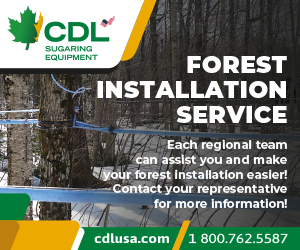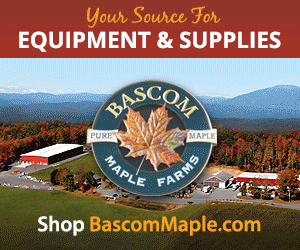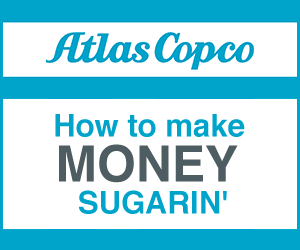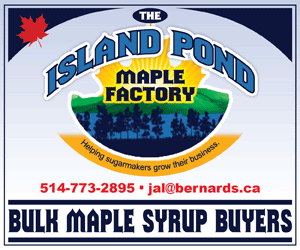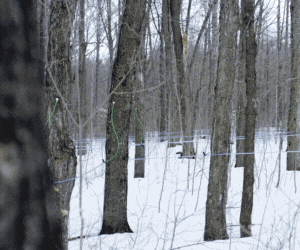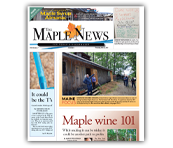BACK TO HOME
Food Safety & Gov't Regulations
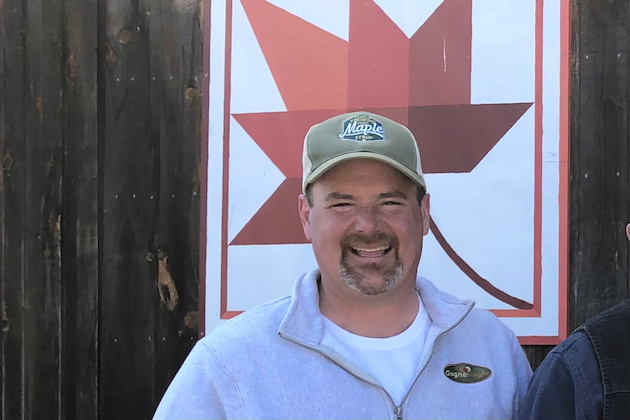
Organic certification program in Swanton, Vt. this month
Peter Gregg | August 15, 2023
SWANTON, Vt.—Join NOFA-VT for their 2023 summer workshop on organic maple production coming August 28.
Interested in learning more about organic certification and sugarhouse food safety?
Join NOFA for a tour at Gagne Maple, a fifth generation wood-fired sugaring operation certified organic by Vermont Organic Farmers (VOF) and a sugarhouse food safety program participant with the Vermont Maple Sugar Makers' Association (VMSMA).
Jason Gagne will lead a tour following the flow of sap to syrup while we discuss organic and food safety requirements relevant to each step of the process.
Staff from VOF and VMSMA will discuss the certification requirements and benefits associated with organic and food safety certifications.
[ MORE ]

International Maple Grading School to Lowville, N.Y. September 7
Kara Dunn | July 25, 2023
LOWVILLE, N.Y.—The Northern New York Agricultural Development Program (NNYADP) is collaborating with the International Maple Grading School and Quality Control Program to offer a full day of hands-on maple education for beginning and advanced maple producers.
The highly-requested training combines science-based instruction with intensive hands-on activities on how to accurately grade maple syrup and maple products and other quality control measures.
The program will be offered on September 7 from 8:30 am to 4:30 pm at the Lewis County Education Center, 7395 East Road, Lowville, New York. [ MORE ]

Gov't funds available for sugarmaker equipment upgrades
| June 23, 2023
HARRISBURG, Pa.—USDA Natural Resource Conservation Service (NRCS) holds a magnitude of hidden gems to offer maple syrup producers.
For example, through our Technical Service Provider (TSP), NRCS can help develop both Energy Management Plans to identify areas of an operation that could become more efficient in cost of operation and time, and Forest Management Plans that inventory and alleviate resource concerns and are geared toward planning a strategy to create a healthier forest based on landowner goals.
To help in the implementation of the Energy Management Plan, NRCS’s Environmental Quality Incentives Program (EQIP) can provide cost share incentives where the incentive payment is proportionate with your operations size. Items include:
-Energy Efficient Hot Water Heaters,
-VFD’s for vacuum pumps
-Automatic Control Systems
-Reverse Osmosis machines
-Oil‐Fired Evaporators [ MORE ]
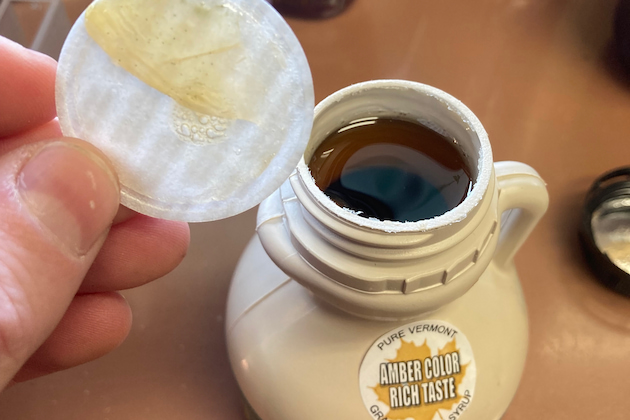
Vermont agency issues 'report card' on maple inspections
Tucker Diego, VT Agency of Agriculture, Food & Markets | August 1, 2022
inspections it conducts at retail stores throughout the state.
You can think of these as “report cards” for how well maple products meet Vermont requirements.
Inspectors review product labels and sample maple syrup to ensure those products meet standards for quality, food safety, and fair labeling.
This work is important for maintaining a fair market for producers, protecting consumers from unsafe products or inaccurate labeling, and supporting the high quality of the maple industry.
These results are from nineteen inspections which were completed between January and June, and included thirteen routine, one follow-up, and five for-cause inspections. [ MORE ]
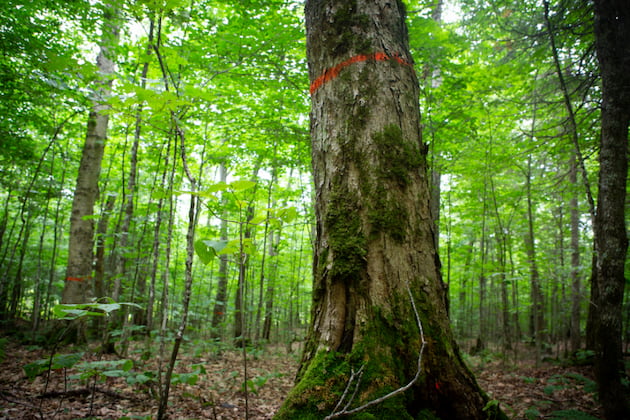
Federation urges government to stop logging maples on Crown land
Peter Gregg | September 29, 2021
LONGUEUIL, Que. —Tap 'em don't chop 'em.
With logging due to begin this fall, the Québec Maple Syrup Producers (QMSP) federation is urging a review of the provincial Québec Timber Production Strategy, which calls for logging maple forests on Crown land that could otherwise be tapped by sugarmakers.
Introduced last December by the Ministre des Forêts, de la Faune et des Parcs (MFFP), the policy has devastating consequences for maple producers on public lands and the future of the maple industry in general, the federaion said.
The government strategy sets aside a mere 30,000 hectares of public land to maple production, far less than the 200,000 hectares QMSP says the industry will need.
QMSP is pressing for changes before too much damage is done. [ MORE ]
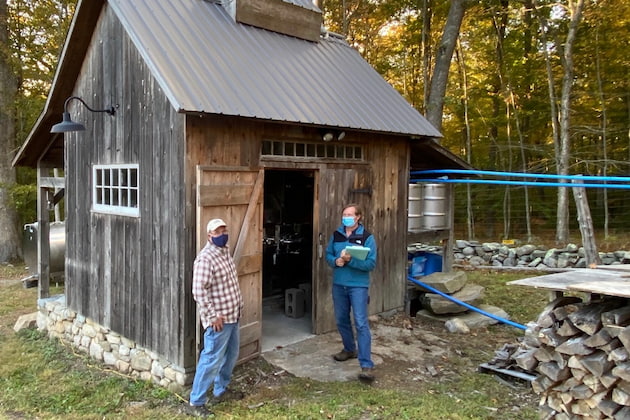
USDA to reimburse farmers for organic certification fees
Peter Gregg | September 20, 2021
WASHINGTON—Organic sugarmakers can now apply for U.S. Department of Agriculture (USDA) funds to cover the cost of receiving or maintaining organic certification.
Applications for the Organic Certification Cost Share Program (OCCSP) are due Nov. 1.
Producers can be reimbursed for expenses made between Oct. 1, 2020 and Sept. 30, 2021 including application fees, inspection costs, fees related to equivalency agreement and arrangement requirements, travel expenses for inspectors, user fees, sales assessments and postage.
Meanwhile, it’s not too late to get certified organic for the upcoming season, say industry officials.
“Maple is one of the easiest crops to certify,” said Donald Franczyk, executive director of Baystate Organic Certifiers, a USDA accredited certifying agency providing organic certification to farm and processing operations throughout the U.S. [ MORE ]
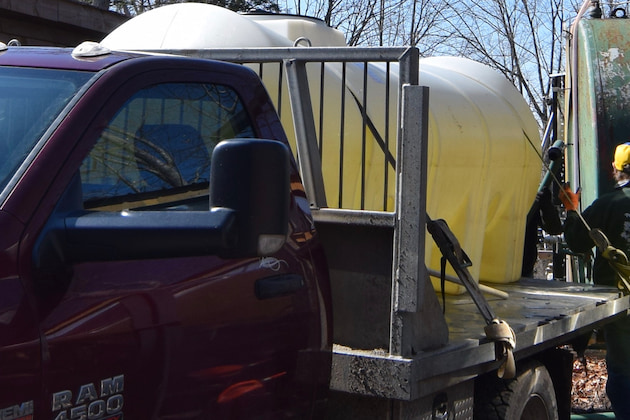
Sap hauling banned in some Wisconsin towns
Theresa Baroun | August 12, 2021
MADISON, Wisc.—Sugarmakers in Wisconsin have been banned from hauling sap by local town and county restrictions.
Some townships and counties have put their law enforcement on high alert during sap season to enforce road bans and weight limits during the spring break up, which makes it nearly impossible for those that need to move sap to do so legally.
The Wisconsin Maple Syrup Producers Association (WMSPA) has been working with the Wisconsin state legislature to get the department of transportation to recognize maple sap as an agricultural product.
There is a long way to go and a lot of minds need to be educated that maple sap is perishable ag product, no different than the dairy industry moving milk.
Legislative Bill 262 is currently being considered by the legislature in Madison.
[ MORE ]
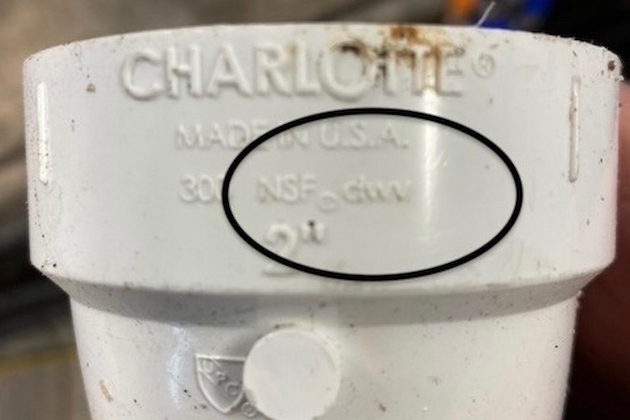
Non food-grade PVC could become a issue
Peter Gregg | May 26, 2021
HIGHGATE, Vt.—Get out your wrenches.
The development of a new sugarhouse certification program in Vermont has uncovered a possible new food safety issue for the whole industry—the use of non food grade PVC pipe.
“I don’t think anybody knew this was a problem,” said Arnie Piper, vice chairman of the Vermont Maple Sugar Makers Association, who is spearheading a voluntary first-of-its-kind state certification program that is expected to launch in the near future.
At issue is some PVC used in sugarhouses and sold by plumbing supply houses not stamped as food grade but instead intended for drainage, waste and venting.
“The bad stuff is gonna say DWV,” Piper said. [ MORE ]
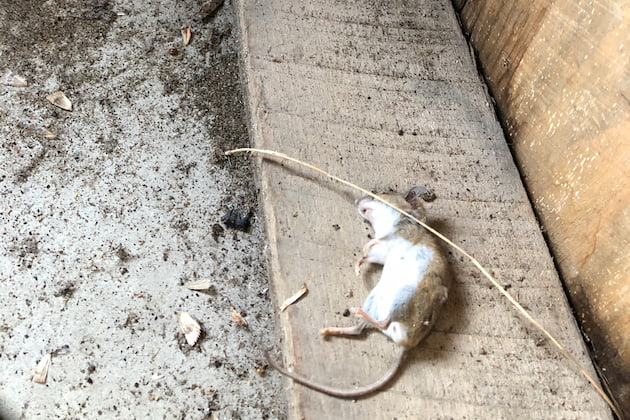
Tips on passing sugarhouse inspections and complying with regs
Paul Post | May 19, 2021
MADISON, Wisc.—Complying with ever-changing government rules and regulations can be a burdensome challenge for any small business operator.
Sugarmakers are no exception.
But it's important for the industry to maintain a high standard of quality and consumer confidence. A Wisconsin state official told how the licensing and inspection process helps achieve such goals and what inspectors are trained to look for in his presentation, "Requirements of Facilities Used Solely for Concentration of Maple Sap." [ MORE ]
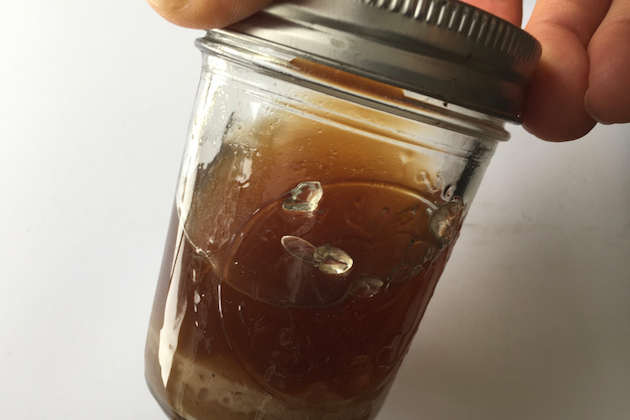
Why does my syrup taste sick? Tips for avoiding off flavor this season
Peter Gregg | March 11, 2021
MORRISVILLE, Vt.—Flavor is weird.
“Flavor is a personal experience, ” said Mark Isselhardt, the UVM Extension Maple Specialist who led an online seminar on identifying flavor in syrup called “Why does my syrup taste sick?”
"It may be influenced by what your family grew up favoring," he said.
Isselhardt was joined by former Vermont agency of agriculture inspector Henry Marckres, a legend in the state and a leading expert on syrup quality.
Both encouraged sugarmakers this season to pay close attention to taste and quality and identify flavors that would be different than normal.
“If it doesn’t taste quite right, bring it home and have someone else taste it,” Marckres said. [ MORE ]
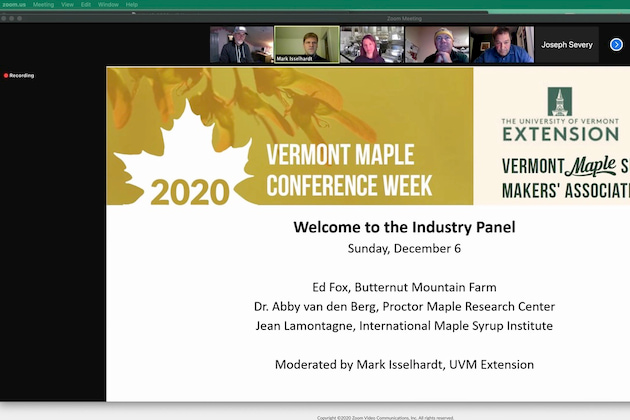
Vermont maple conference week kicks off
Peter Gregg | December 7, 2020
WESTFORD, Vt.—The Vermont Maple Sugar Makers Association and the UVM Extension Service are hosting a series of online classes for sugarmakers all this week.
The classes are free.
Preregister at https://vermontmaple.org/maple-conferences.
Here is a rundown of the classes:
Monday, Dec. 7 5:00 - 6:00 pm
Thinning your Sugarbush for Sap & Tree Health with Peter Smallidge
Thinning is a specific woodlot management practice to concentrate growth on the most desirable trees. This presentation reviews the benefits of thinning, how to know
if you should thin your sugarbush, potential problems from thinning, and reviews research about how thinning in NY sugarbushes affects health, tapping options, and production.
Tuesday, December 8
9:00 - 10:00 am Designing & Installing a Maple Tubing System with Adam Wild
Looking to upgrade from buckets to tubing or add vacuum? This session will cover basic tubing design and installation for both gravity and vacuum systems. [ MORE ]
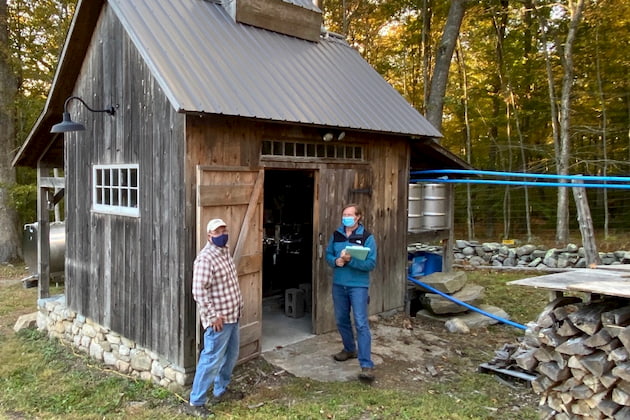
Better price! Not too late to get certified organic for upcoming season
Peter Gregg | November 17, 2020
DIGHTON, Mass.—It’s not too late to get certified organic for the upcoming season.
“Maple is one of the easiest crops to certify,” said Donald Franczyk, executive director of Baystate Organic Certifiers, a USDA accredited certifying agency providing organic certification to farm and processing operations throughout the U.S.
“We’re set up to take maple applications up through the sap run,” Franczyk said.
He said the process from application to certification can take as little as four to six weeks, allowing sugarmakers to jump on the organic trend and take advantage of better pricing.
Organic syrup generally fetches a higher retail price for sugarmakers who market directly to consumers. Producers who sell syrup to bulk buyers will also receive a premium. [ MORE ]
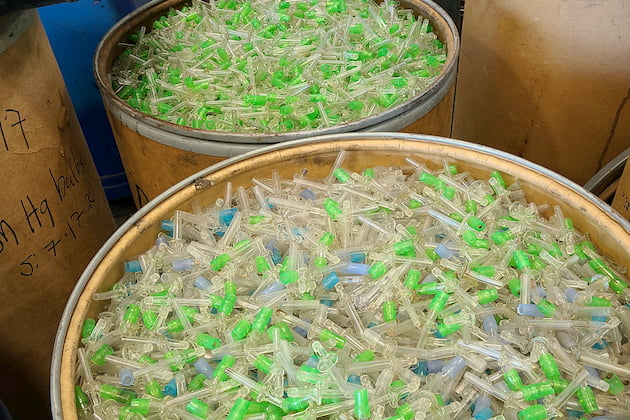
Vermont agency trying to find a home for old spouts besides the landfill
Peter Gregg | October 20, 2020
FAIRFAX, Vt.—Old spouts can't find a home.
The Northwest Vermont Solid Waste District continues to seek alternatives to landfilling polycarbonate spouts.
Unfortunately, the NWSWD has been unsuccessful during the prior eight months in identifying a downstream facility with the in-house capacity to fully process PC spouts.
Clear PC spout samples shipped to an Illinois processor did not result in advancing to bench-level processing.
Fully processing PC spouts will require three steps: grinding, washing and flotation separation to remove sapline contaminant plastic and other debris. [ MORE ]
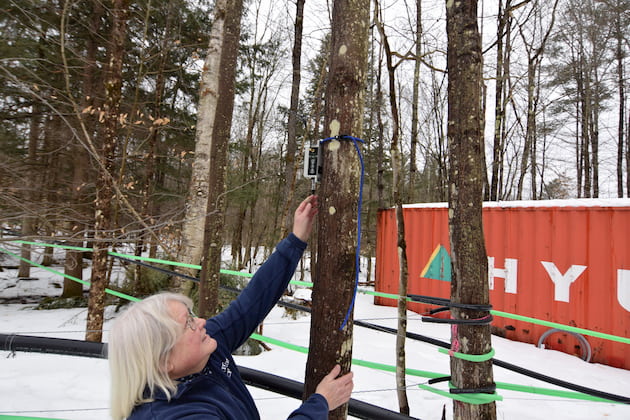
New round of grants available for producers
Peter Gregg | October 6, 2020
MONTPELIER, Vt.—Better get on it.
Syrup producers have new rounds of grant opportunities coming up again through the USDA Rural Energy for America Program (REAP).
The agency’s REAP grants have fresh deadlines for 2021 funding of November 2 and March 31.
A webinar was held for producers in Vermont and New Hampshire last month that outlines details about the program and how to apply (sugarmakers in other states are eligible as well).
USDA officials stress that the application process is fairly easy to navigate. [ MORE ]
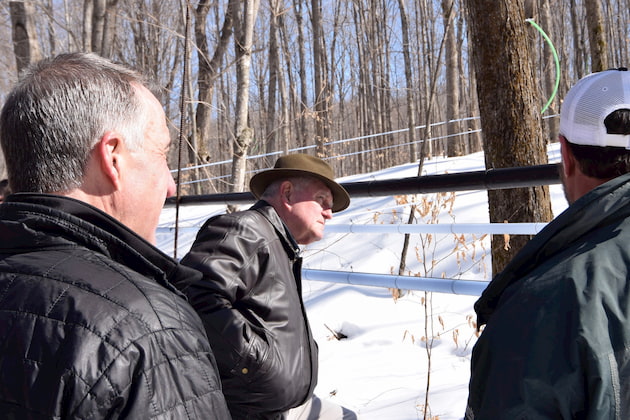
Sugarmakers have many resources for help with CFAP application process
Peter Gregg | August 30, 2020
SYRACUSE, N.Y.—Better get busy on the paperwork.
Producers looking to apply for emergency aid funding through the USDA Coronavirus Food Assistance Program (CFAP) are being encouraged to get to work immediately on the red tape.
Deadline to sign up for the funding is Sept. 11.
“With only two weeks before the deadline, now is the time to check out the resources on farmers.gov/cfap and contact the call center or your local FSA office for your last-minute questions,” the USDA’s Farm Service Agency said in a statement on Friday.
Meanwhile, the New York State Maple Producers Association based in Syracuse is hosting a webinar on Wednesday Sept. 2 at 7pm to answer questions for sugarmakers. [ MORE ]
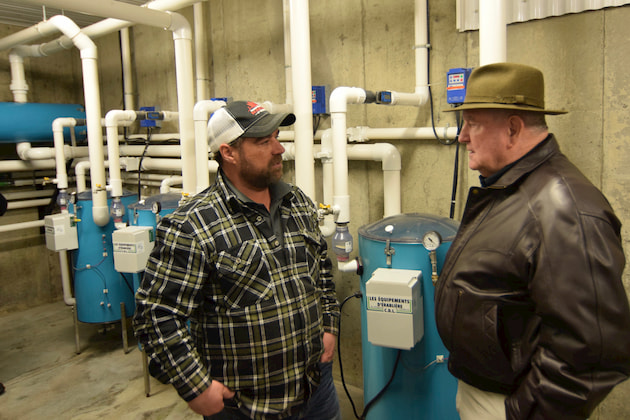
Details coming in on Covid relief program for maple
Peter Gregg | August 23, 2020
WESTFORD, Vt.—Details are coming in on the maple portion of the $16 billion Coronavirus Food Assistance Program (CFAP) which provides direct relief to producers who faced price declines and additional marketing costs due to COVID-19.
The program was expanded last week to include what the USDA has classified in their wording as “maple sap (for maple syrup).”
Farmers will have until Sept. 11 to apply for the funding.
On Friday Vermont’s USDA contact Wendy Wilton held an online meeting with the Vermont Maple Sugar Makers Association to clarify details of the program, said VMSMA executive director Allison Hope.
“I have been working with the state FSA offices cooperatively to get a clear definition.”
[ MORE ]
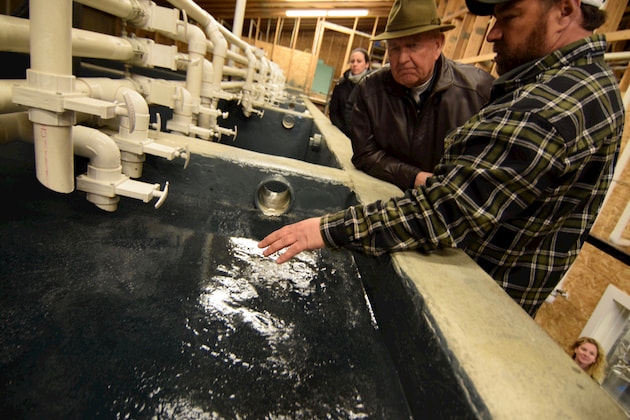
Maple producers are added to the $16 billion CFAP program
Peter Gregg | August 16, 2020
WESTFORD, Vt.—Emergency coronavirus relief funds are now available for maple producers, beginning Monday Aug. 17.
The $16 billion Coronavirus Food Assistance Program (CFAP) administered by the USDA provides direct relief to producers who faced price declines and additional marketing costs due to COVID-19.
Nearly 60 additional commodities were announced by the USDA on August 11, including the addition of what the USDA has classified in their wording as “maple sap (for maple syrup).”
Allison Hope of the Vermont Maple Sugar Makers Association said last week she is seeking clarification on the odd wording. [ MORE ]
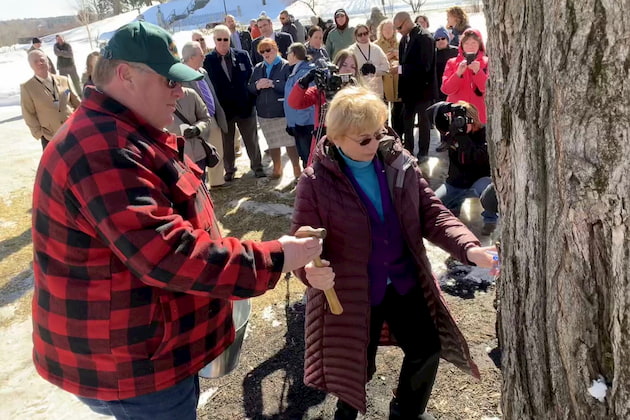
Maine's governor calls out USDA for omitting maple from CFAP
Peter Gregg | June 23, 2020
AUGUSTA, Maine— Gov. Janet Mills on Tuesday called out the USDA for failing to designate maple syrup as an eligible crop in the $19 billion Coronavirus Food Assistance Program.
“The COVID-19 pandemic has been especially difficult for Maine’s approximately 557 maple syrup producers,” the governor said on Tuesday.
Sugarmakers in the U.S. are currently ineligible for CFAP despite the industry suffering COVID-19 losses including price drops, annual event cancellations like Maine Maple Sunday and restaurant closures. The food service sector has also dried up.
The CFAP program provides direct cash payments of up to $250,000 to farmers affected by the coronavirus pandemic. For example, USDA says U.S. dairy producers received nearly $667 million in direct payments through CFAP as of June 15.
Specialty crops as obscure as rhubarb and taro have been included in the CFAP program. The USDA has shut out other commodities besides maple but said it would reconsider “if credible evidence is provided that supports a five percent price decline,” the agency said.
[ MORE ]
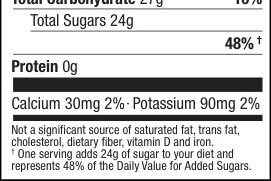
Sugarmakers not out of the woods on FDA 'added sugar' label change
Peter Gregg | April 27, 2020
MIDDLEBURY, Vt.—Sugarmakers are not out of the woods on the controversial added sugar issue.
The U.S. Food & Drug Administration is still deliberating new nutritional labels for pure maple syrup.
While the labels will not specifically force sugarmakers to make a false claim that the product somehow has ‘added sugars’ as originally proposed last year, the label still may state that syrup will be an added sugar to the amount of recommended sugar intake in consumers’ total diet.
[ MORE ]
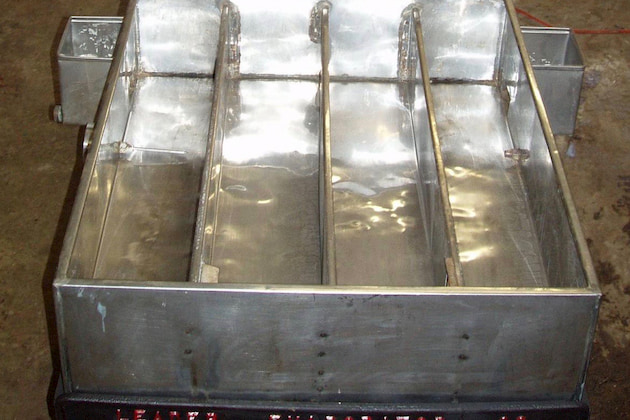
Lead equipment ban for small producers nears
Peter Gregg | February 20, 2020
ALSTEAD, N.H.—Last chance to get the lead out.
Small scale sugarmakers must have nearly all lead equipment out of the production process this season if they plan to sell their syrup to a bulk buyer. And all the rest of their lead equipmnet must be scrapped by October, the last wave of compliance with state of California regulators who sued syrup packers six years ago for not meeting stringent lead-free standards.
“The industry needs to be compliant,” said Ray Bonenberg of Mapleside Sugar Bush in Pembroke, Ont. and past-president of the International Maple Syrup Institute which has been helping educate producers on the issue.
Sugarmakers with 10,000 taps or less must get even the smallest piece of lead-laced equipment out of the sugarhouse if they plan to sell any syrup to a wholesale buyer this spring. [ MORE ]
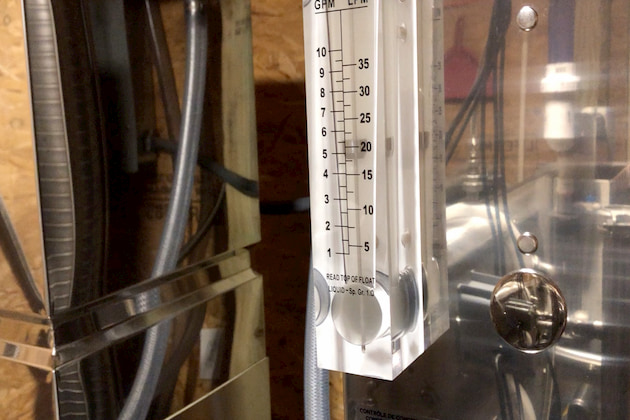
Wisconsin regulators target RO 'wastewater'
Stan Maddux | February 7, 2020
MADISON, Wis.—The discharge water from reverse osmosis machines maple syrup makers use in Wisconsin will have to pass a test for them to keep making liquid gold.
A proposal requiring sugarmakers to obtain a state-issued permit for RO discharge will be reviewed for possible revisions before taking effect in February of 2021, said Michelle Balk, basin supervisor for the Wisconsin Department of Natural Resources in Spooner who is involved with the DNR’s waste water program for the northwest part of the state.
It’s the solvents in the water used to clean reverse osmosis machines the DNR wants to make sure doesn’t pose a threat to groundwater or lakes and streams when released onto the ground.
A public comment period on the proposal ends February 13. [ MORE ]
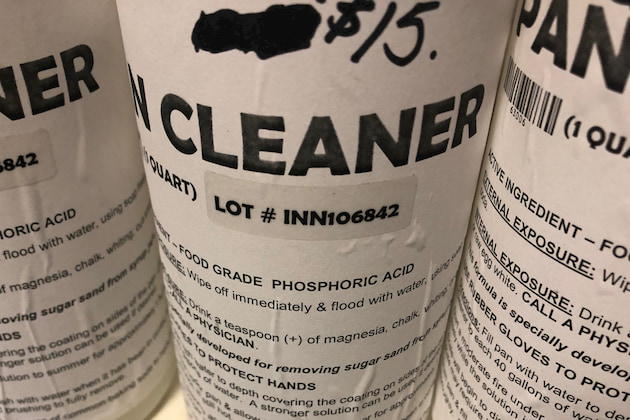
Vt. inspectors researching pan cleaner runoff
Peter Gregg | March 26, 2019
MONTPELIER, Vt.—Vermont regulators are targeting sugarhouses as their next jurisdiction of water protection rules.
“We will be going going around collecting data and finding out the levels of concentration coming out of the waste at sugarhouses,” said Patrick Fry, Agricultural Engineer, Vermont Agency of Agriculture, Food, & Markets (VAAFM).
Fry said he won’t be writing the laws but will be making recommendations to the rule makers that do.
“I’m going to be talking about ways they can be alleviating concerns that I personally have,” Fry said. He was a featured speaker at the Vermont Maple Schools in January.
At issue is the so-called “waste” Fry says is coming out of the big-time sugarhouses in the state and making its way into major waterways like Lake Champlain, Lake Memphremagog, the Connecticut River, Lake Carmi and other water sources.
Fry claims that the biggest culprit is pure phosphorus from pan cleaners mixing in with the permeate discharge which then merges into a channel and makes its way directly into those water bodies. [ MORE ]
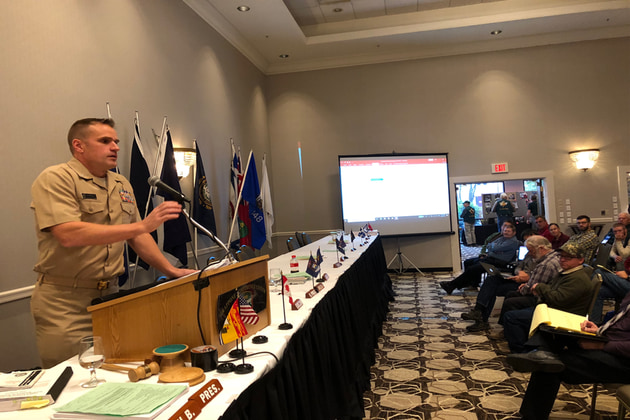
FDA official calms fears about inspections
Peter Gregg | January 25, 2019
CONCORD, N.H.—The FDA may be getting “defriended” by sugarmakers.
Sugarmakers who registered their operations with the FDA, some of who did so as early as 2003, can unregister themselves if half or more of their gross sales is direct-to-consumer retail.
“You can cancel your food facility registration,” said Commander Joseph Frost of the U.S. Public Health Service, a branch of the FDA.
Frost was the keynote speaker at the North American Maple Syrup Council annual meeting in Concord, N.H. this fall and while there still seems to be some ambiguity in the new Food Safety Modernization Act’s effect on maple, Frost’s remarks put many at ease.
“If 50 percent of your money is from direct-to-consumer sales, you are exempt from FDA regulations,” Frost said, and repeated it several times in his remarks.
“So if I sell most of my syrup retail, I am totally exempt from everything?” asked Ron Wentzel, a sugarmaker from Hebron, Ct.
“If you build a sugar shack, but 50 percent of your money is from direct consumer sales, you are exempt from FDA regulations,” Frost repeated.
The confusing regulations imposed by the FDA on sugarhouses have been a source of anxiety for many sugarmakers, some even choosing to pull out of the commercial market rather than subject themselves to government regulation. Producers had until Sept. 17 to register online with the agency. [ MORE ]
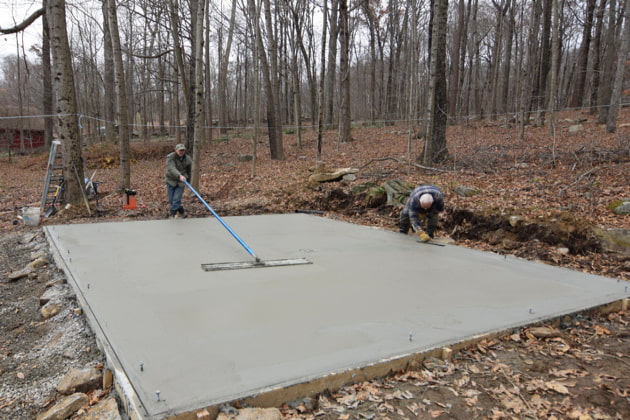
Connecticut sugarmakers fighting new food law
Peter Gregg | January 25, 2019
COLUMBIA, Conn.—A new state law has sugarmakers in a panic and an effort is underway to convince the state legislature to rewrite it.
“It could be arbitrary,” said Mathew Wilkinson, a sugarmaker in Columbia, Conn. who is spearheading a campaign to convince the legislature to revise the state’s so-called “Cottage Food Law” to address concerns of maple.
As it stands now, the law sets up an inspection process for small scale sugarmakers making candy or cream in their home or sugarhouse kitchens. Advocates say this will benefit the industry by giving consumers confidence that they’re getting clean and safe products made in a wholesome foodmaking facility.
“It helps mom & pop operations,” Wilkinson said.
But the law does not address maple specifically and if taken literally, it could force all production, including syrupmaking, to occur in a state approved “kitchen” which in turn could mean that all sugarhouses will come under state inspection and could be forced to comply with regulations for kitchens. [ MORE ]
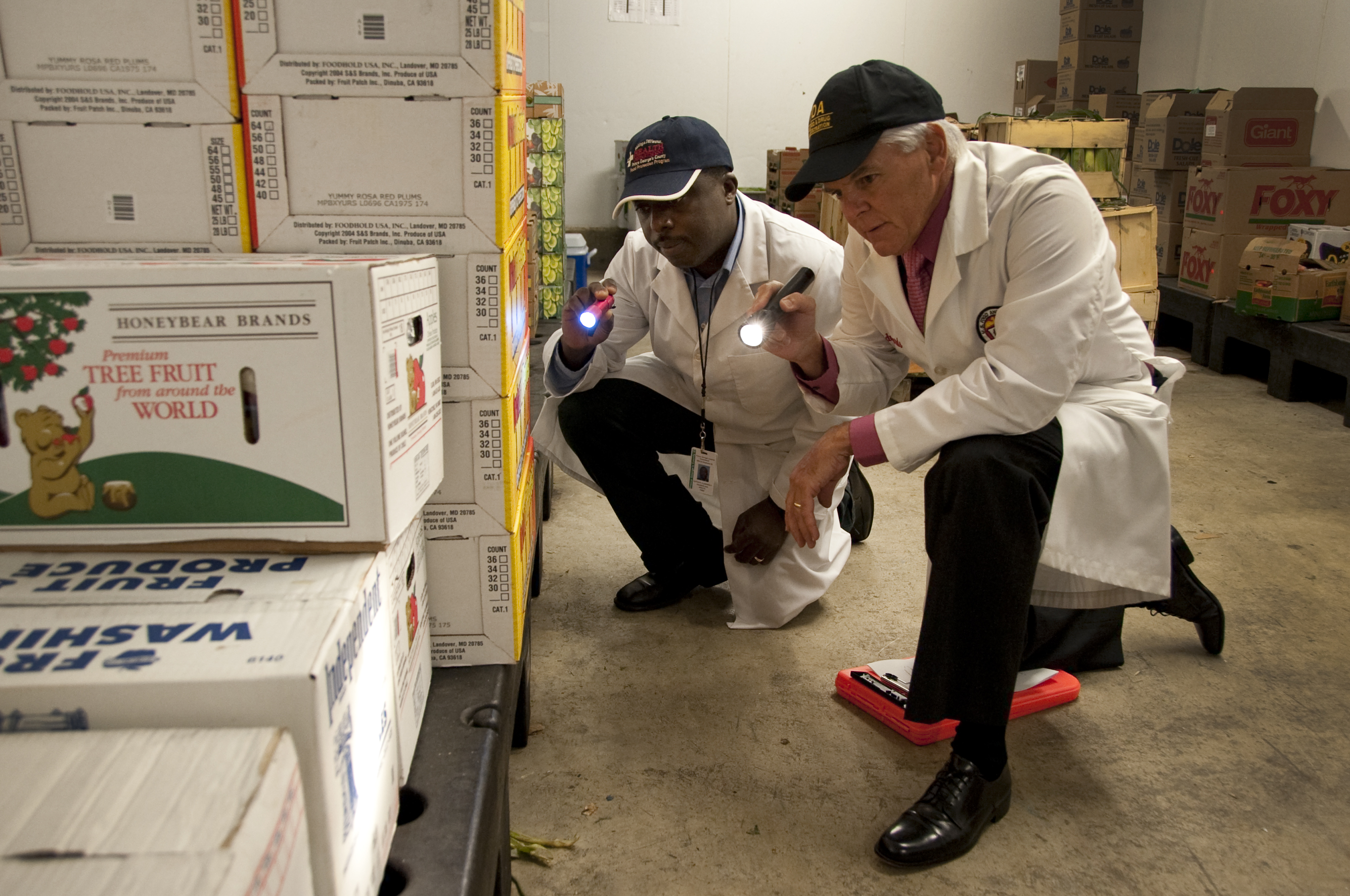
Expert advice on how to comply with FDA regs
Paul Post, Peter Gregg | October 1, 2018
Sugarmakers who produce more than 50 percent of their crop for the bulk market need to comply with the new Food Safety Modernization Act regulations. The deadline to register with the FDA was Sept. 17.
But then what?
Kathy Hopkins of the University of Maine Cooperative Extension advises sugarmakers to have a good, well-documented Food Safety Plan and adhere to Current Good Manufacturing Practices (CGMP). FDA inspectors can inspect sugarhouses unannounced at any time.
"Protect yourself," she said during a seminar last winter. "If an FDA inspector makes a random visit and sees dust, dirt, peeling paint and no Food Safety Plan they can withdraw your exemption and force compliance with the FSMA. They're not there to make your life difficult. They're there to protect consumers."
If FDA shows up at your sugarhouse, common courtesy should prevail.
"Remember, be nice," Hopkins said. "You can more flies with honey than vinegar." [ MORE ]
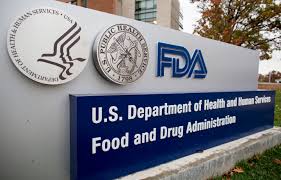
Deadline passes for FDA registration
Peter Gregg | September 17, 2018
DURHAM, N.H.—It’s deadline day.
Maple producers had a deadline of Sept. 17, to register with the FDA as part of the Food Safety Modernization Act.
“The FDA is saying that it is a prohibited act not to be in compliance with the rule,” said Heather Bryant, an extension agent with the University of New Hampshire who is working with producers in her state to get sugarmakers in accordance with the new law.
The rule applies to sugarmakers across the U.S.
Most sugarmakers had been informed that the deadline to comply was in November, but that was incorrect. [ MORE ]
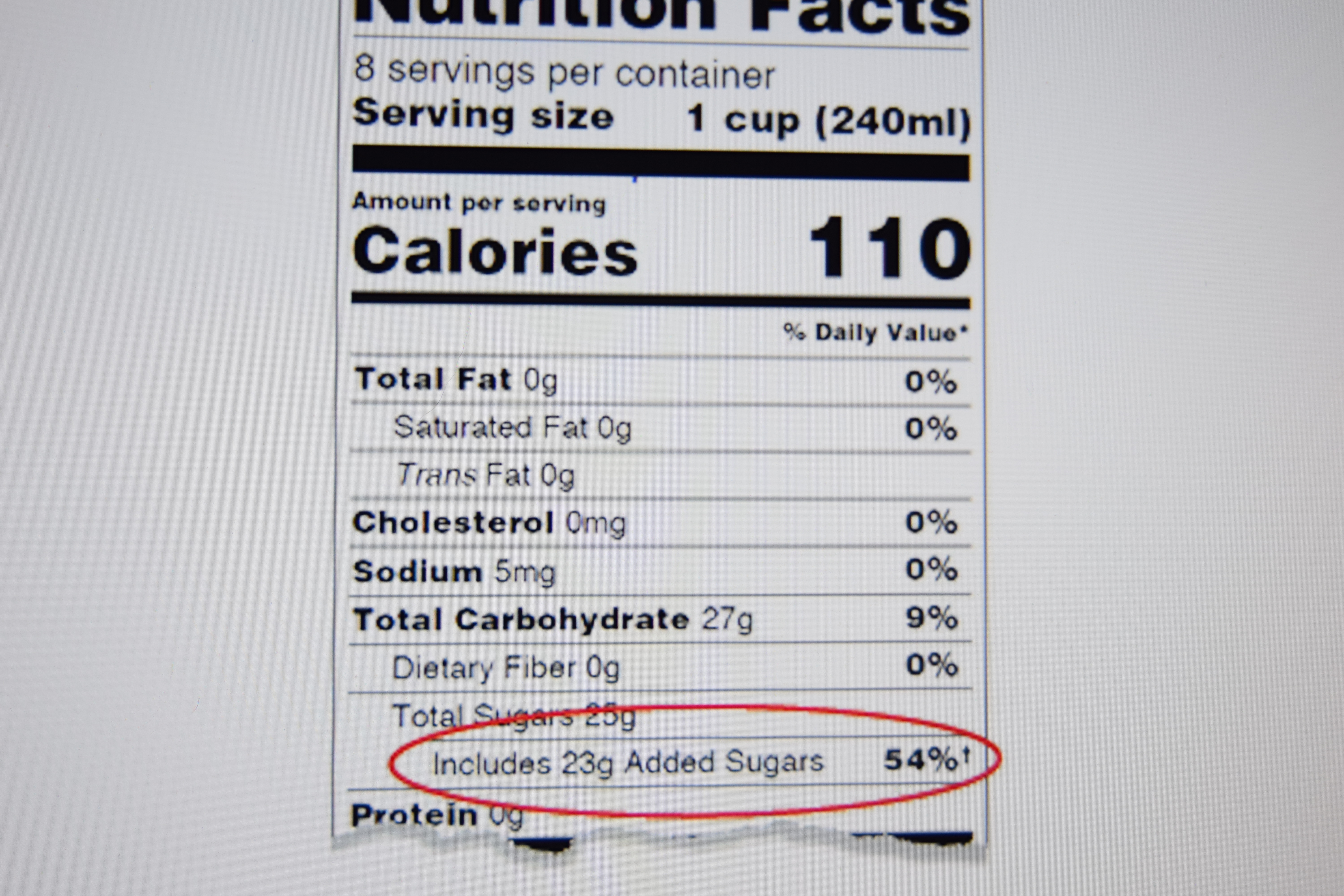
URGENT: FDA looking to tarnish pure maple image
Peter Gregg | June 1, 2018
WASHINGTON, D.C.—Proposed FDA regulations require that single ingredient foods such as maple syrup be required to declare the product contains “added sugars” even through there are none.
In new labeling laws, now under consideration, the FDA will make producers declare that syrup has up to 23 grams of “added sugars.”
This untrue statement could have a devastating impact on sales, industry officials say. [ MORE ]
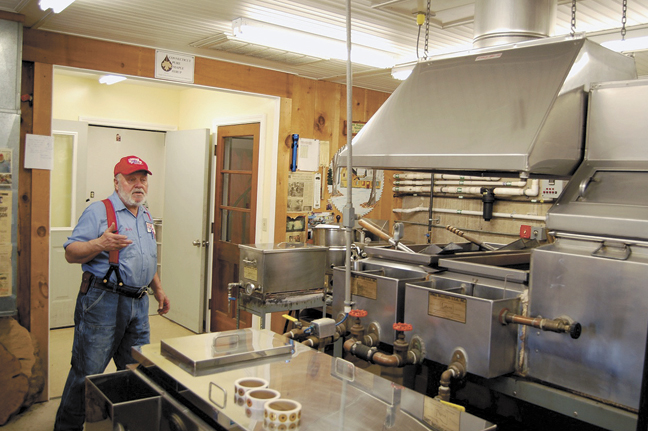
Sugarmakers deal with compliance conundrum
Paul Post | Nov. 11, 2017
A prominent Connecticut maple producer has spent considerable time and money bringing his sugarhouse into compliance with new Food Safety Modernization Act standards.
The federal bill was passed in 2011 and took effect in November 2015. The largest operations had to comply by last November, while mid- and small-sized businesses have until this fall or November 2018, respectively. [ MORE ]
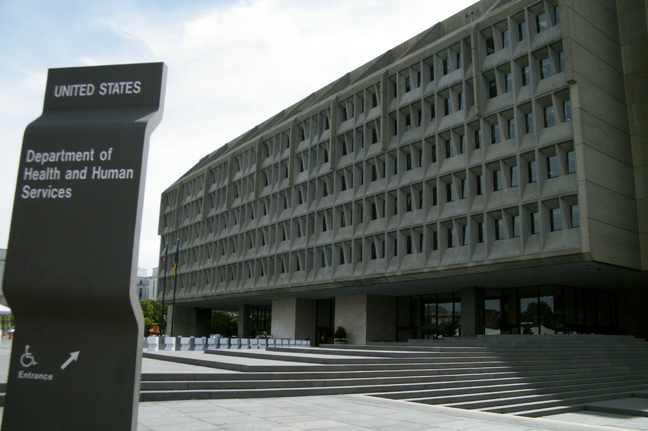
Food & Drug Admin. puts the squeeze on maple registration
Paul Post | Nov. 10, 2017
The clock is ticking for maple producers throughout the U.S. who must comply with new Food Safety Modernization Act regulations.
The section of the 2011 bill that affects maple producers, called the Preventive Controls Rule, took effect in November 2015. The largest operations had to comply by last November, while mid- and small-sized businesses have until this fall or November 2018, respectively. [ MORE ]
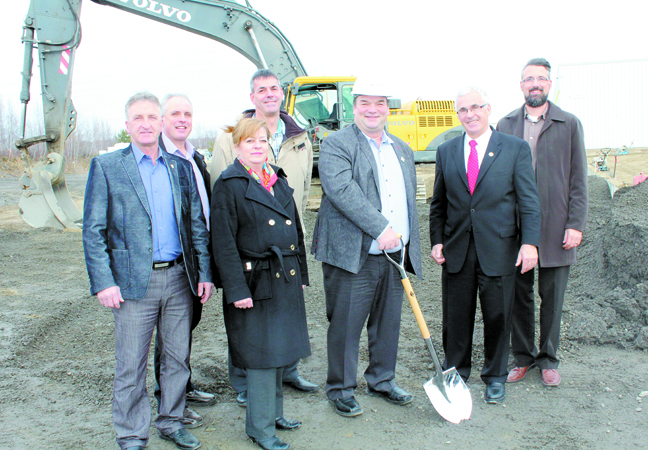
Quebec federation expands reserve warehouse
Submitted | Oct. 3, 2017
The Federation of Quebec Maple Syrup Producers (FPAQ) announced that it will expand its plant/warehouse in Laurierville by an additional 32,000 sq. ft., for a total surface area of 267,000 sq. ft.
The expansion comes just two years after the official opening of the facility in October 2013. The additional warehouse space, a $2 million investment by Quebec maple syrup producers, should be ready for its first barrels of syrup by the end of the 2016 sugar season. [ MORE ]
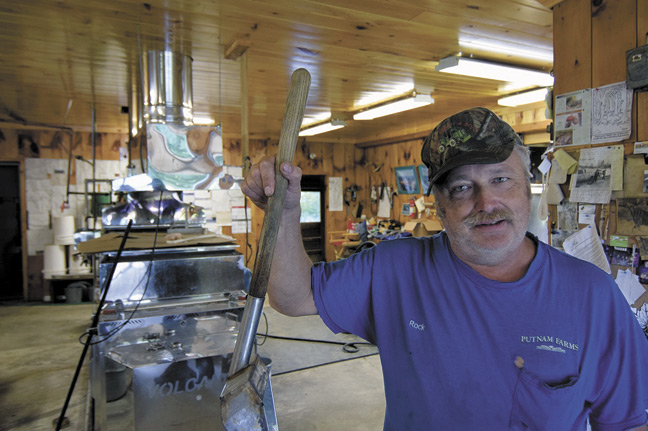
FDA targets N.H. sugarhouse
Peter Gregg | November 2016
Busted for wooden scoop handles. That was maybe most minor, but the most irksome to the offending sugarmaker, of a number of food safety violations observed by an FDA inspector during a surprise two-day walkthrough of Putnam Brothers Maple in Charlestown, N.H. in July. [ MORE ]
















